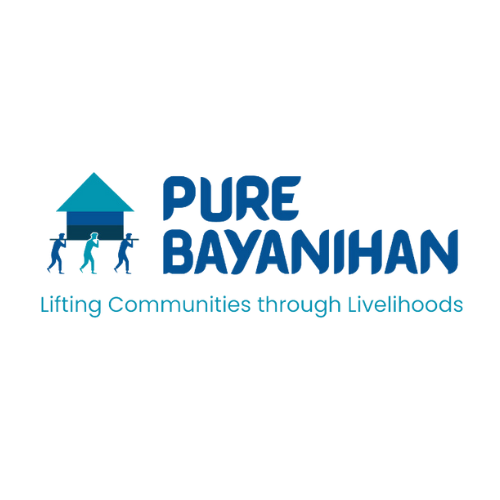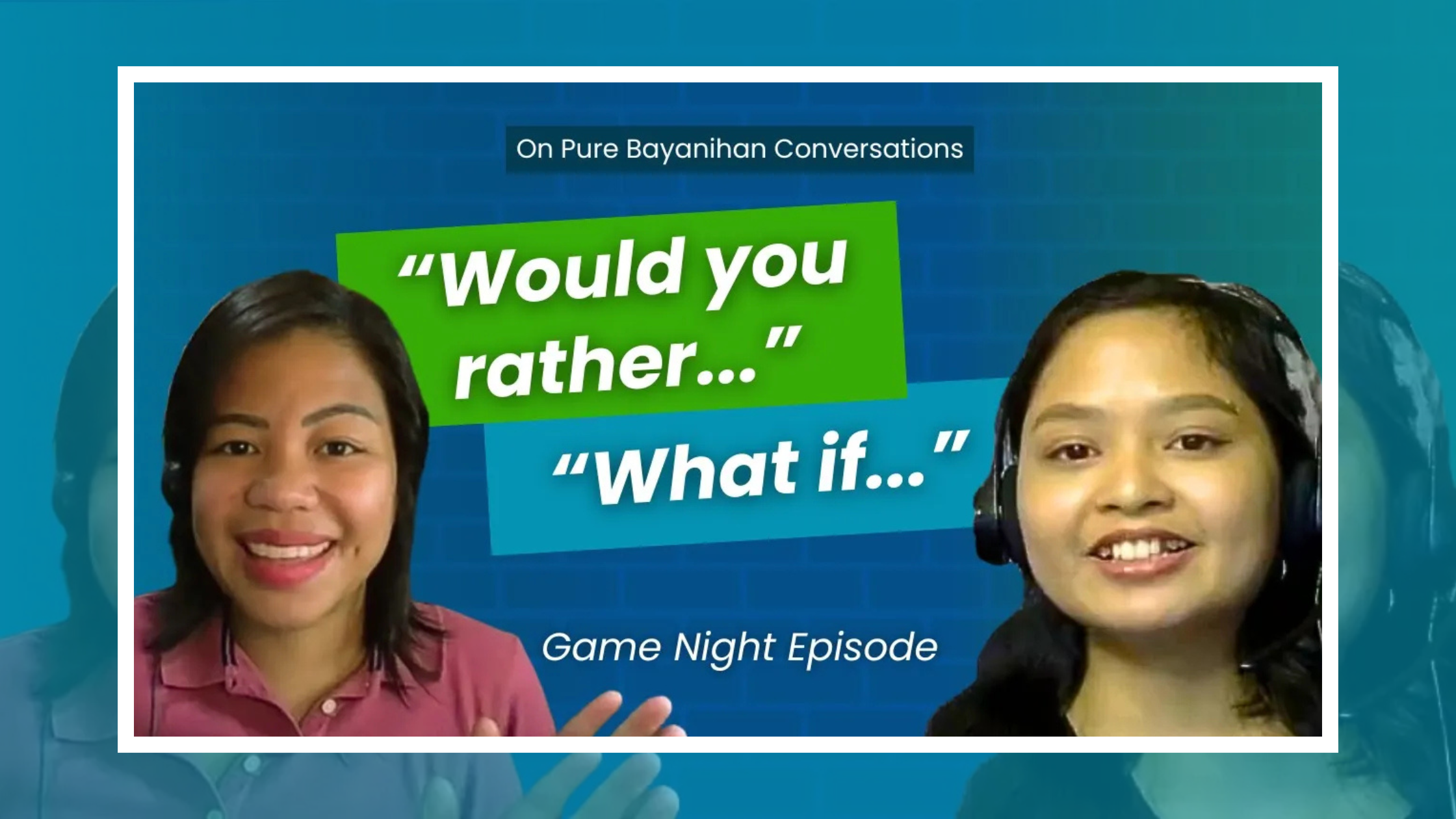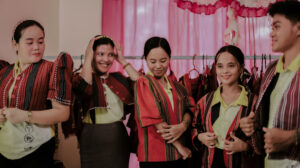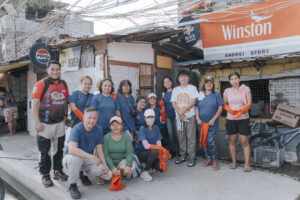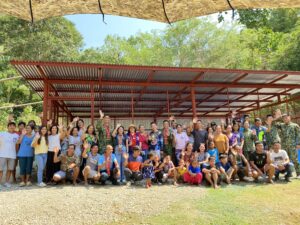How do we end poverty? Maybe it’s not about a single answer, but about facing tough choices—balancing values, trade-offs, and the needs of real communities.
At Pure Bayanihan, these are the kinds of questions we face every day. For our latest podcast episode, hosts Hanna and Regine decided to shake things up. Instead of the usual interviews, they played a game—two rounds of thought-provoking questions designed to reveal the tough trade-offs and bold dreams that shape our mission.
As Hanna put it, “We’re doing this as a game, but in the boardrooms, in the communities, in the barangays, questions like this are being tackled.”
If you want to understand how we think, what we value, and why we do what we do, watch the full episode below or read on for a detailed recap of the insights that emerged.
Round 1: The “Would You Rather” Dilemmas at the Heart of Community Change
This round was about choosing between two compelling paths—each with its own risks and rewards. The answers revealed the core values that guide Pure Bayanihan’s work.
Dilemma 1: Community Ownership vs. Guaranteed Success
Would you rather fund a project 100% led by the community, even if it might fail, OR run a proven, expert-designed project that guarantees success but gives the community less ownership?
Both Hanna and Regine chose community ownership. Regine explained that failure is part of the journey, and when a community owns a project, they also own the learning and growth that comes with it. This kind of ownership builds long-term resilience and problem-solving skills that top-down projects simply can’t deliver.
The Deeper Insight: This isn’t just about delivering results—it’s about dignity, trust, and empowerment. Pure Bayanihan’s approach is rooted in the belief that true sustainability comes from building a community’s capacity to lead, adapt, and thrive long after a project ends.
Dilemma 2: Modernizing Tradition vs. Preserving It
Would you rather help artisans earn more by modernizing their craft, even if it means losing some tradition, OR help them keep their traditions perfectly, even if it means earning less?
Drawing from our recent project with the Young Kankana-eys, Hanna leaned toward modernizing the craft. Her insight: traditions must evolve to survive. “If you err on the side of strictness and being a purist,” she shared, “you will end up losing that tradition… because the people that carry that tradition are earning less or not earning at all.”
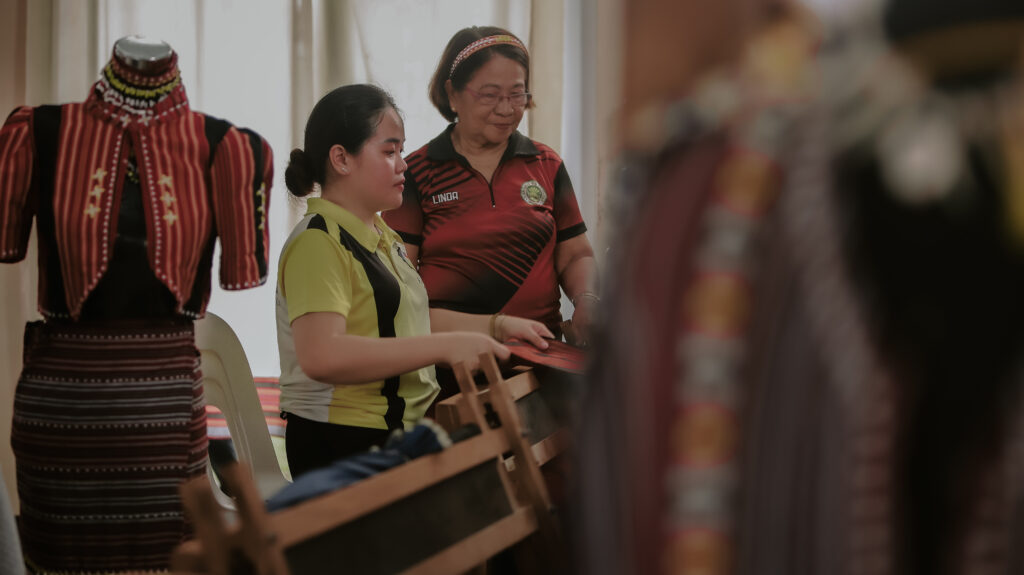
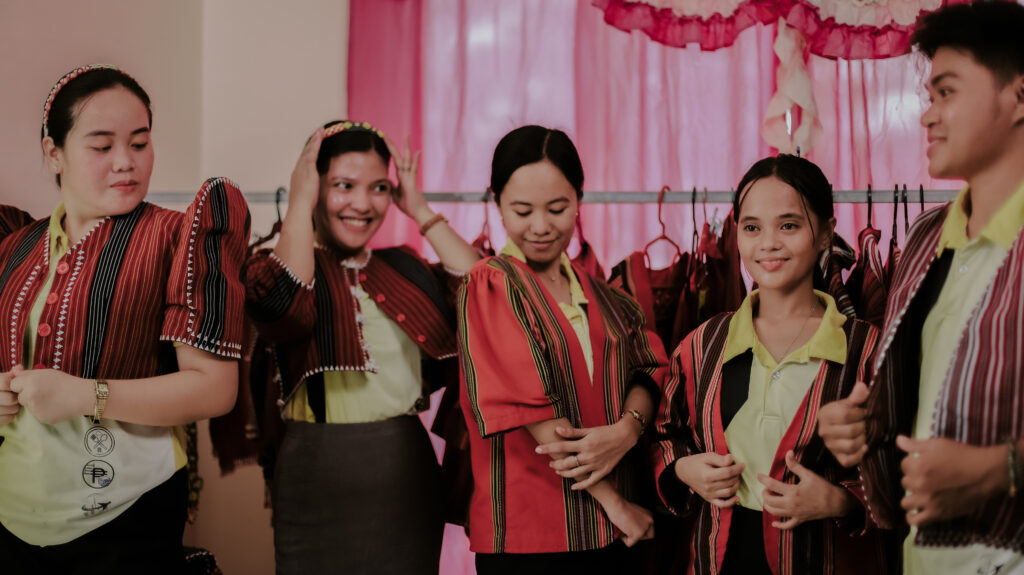
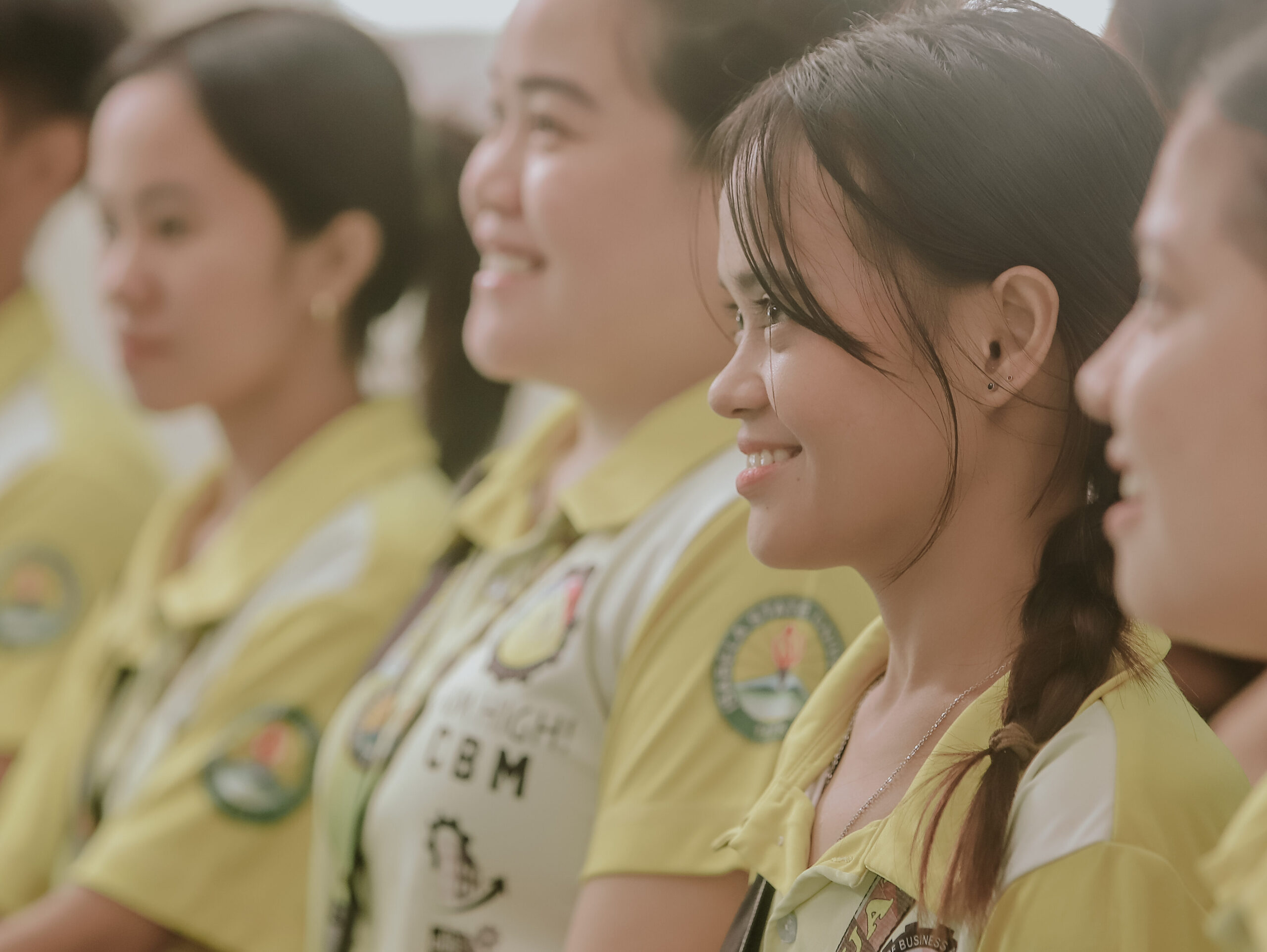
The Deeper Insight: Preservation isn’t about freezing culture in time—it’s about keeping it alive and relevant. By helping artisans innovate and find new markets, we ensure their skills and stories are passed on to future generations.
Dilemma 3: Individual Wealth vs. Bayanihan Spirit
Would you rather make a community rich but more competitive, OR keep gains modest but strengthen bayanihan and social bonds?
Here, both hosts chose to strengthen bayanihan. Regine reminded us that in a country where typhoons and disasters are part of life, survival depends not on wealth, but on “the cooperation, the camaraderie.” Communities that pull together are the ones that recover and thrive.
The Deeper Insight: Economic progress is hollow without social cohesion. Pure Bayanihan is about more than livelihoods—it’s about building resilient, caring communities where people lift each other up.
Dilemma 4: Spreading the Movement vs. Keeping It Pure
Would you rather see your work spark a national movement, even if your vision changes, OR keep your mission pure but only impact a small group?
Hanna championed spreading the movement. She emphasized that bayanihan is a shared heritage, not a proprietary idea. “No one can say that Pure Bayanihan is the only way to lift people out of poverty,” she said. The real goal is for community-driven change to spread and take root everywhere.
The Deeper Insight: The mission is bigger than any organization. True success is when the spirit of bayanihan inspires new leaders, new ideas, and new solutions across the country.
Round 2: Transformative Questions for Systemic Change
This round challenged the hosts to dream big and think systemically—imagining how bold action could address deeply rooted barriers to progress.
Scenario 1: One Project, Nationwide Impact
The government offers to replicate one Pure Bayanihan project across all 81 provinces. Which project do you pick?
Both Hanna and Regine chose projects that create ripple effects:
- Hanna’s Pick: The Baseco Project—empowering single mothers to clean up their environment and earn income by recycling plastics.
- Regine’s Pick: The SQHEYA Project—helping out-of-school youth in Pangasinan run a printing shop and fund their return to education.
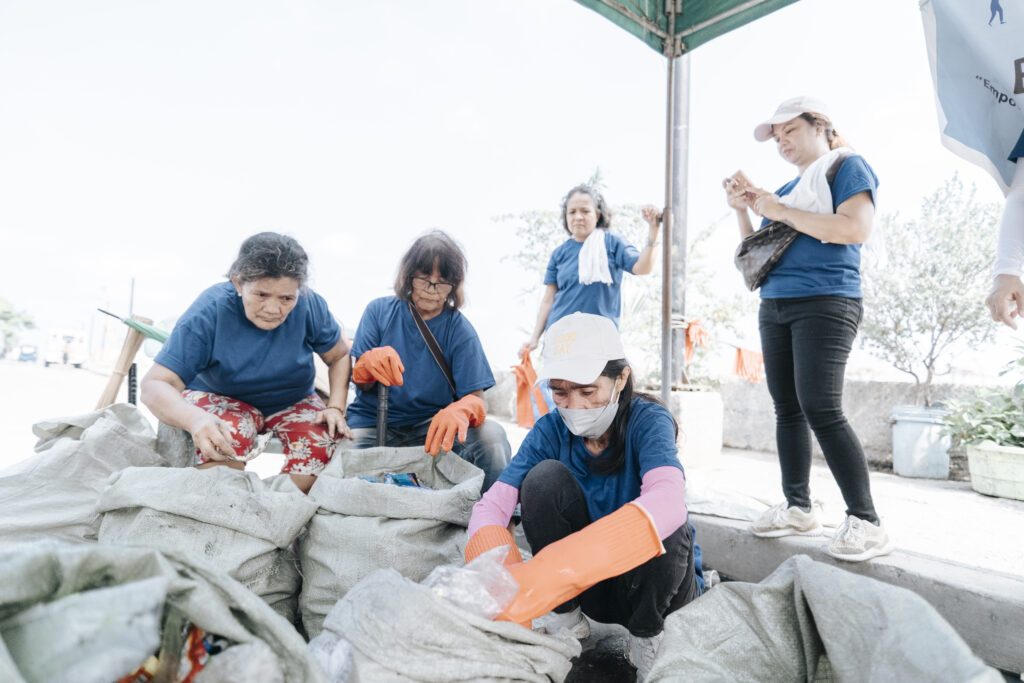
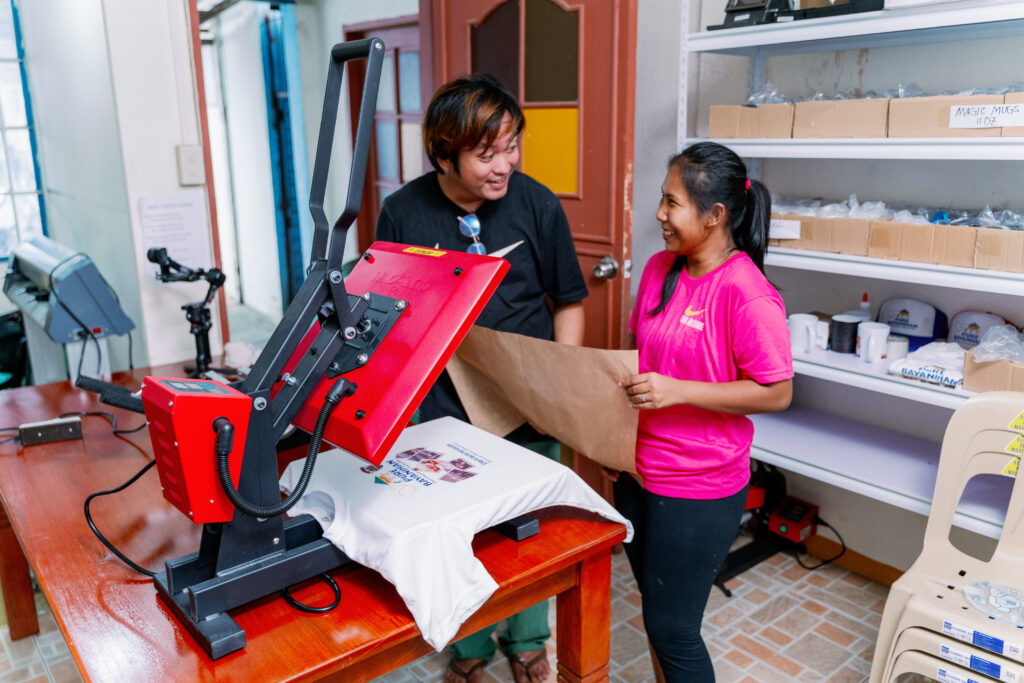
The Deeper Insight: The best solutions are holistic. They don’t just provide income—they restore the environment, empower marginalized groups, and invest in the next generation.
Scenario 2: One Law to Change Everything
You can change one government policy overnight. What do you change?
Regine, drawing on her background in political science, chose to standardize the minimum wage nationwide. She explained how the wage gap between Manila and the provinces splits families and drives urban overcrowding. A fair, national wage would allow people to thrive in their own hometowns.
The Deeper Insight: Livelihood creation must go hand-in-hand with economic justice. Systemic change is needed to create a level playing field for all Filipinos.
Scenario 3: Aliens Offer to Solve One Problem
Benevolent aliens can eliminate one systemic issue creating poverty in the Philippines. What do you choose?
After weighing options like education and disaster resilience, Regine chose corruption. She pointed out that when corruption is removed, resources are freed up for social programs and real progress becomes possible.
The Deeper Insight: Tackling root causes like corruption unlocks the potential for all other solutions to work. It’s the lever that can move everything else.
From Tough Questions to Collective Action
These games weren’t just for fun—they were a window into how Pure Bayanihan thinks, acts, and dreams. Every tough question revealed a deeper truth: lasting change is built on trust, adaptability, and the courage to put people first.
If you believe in empowering communities, in preserving culture through innovation, and in the enduring power of bayanihan, we invite you to join us.
Join the Pure Bayanihan Movement
With a monthly giving commitment, you’ll help create sustainable livelihoods, support families in need, and become part of a growing network of changemakers across the Philippines. Your involvement means more children in school, more families thriving, and more hope for communities that have waited too long for their chance.
Sign up here to become a member.
Together, let’s say YES to life-changing opportunities—and build a future where no one is left behind.
